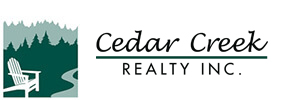 Selecting a mortgage may be the most important financial decision you will make. Most likely, you will be paying off this debt for years, and a small difference in the mortgage rate can make a big difference in monthly payments.
Selecting a mortgage may be the most important financial decision you will make. Most likely, you will be paying off this debt for years, and a small difference in the mortgage rate can make a big difference in monthly payments.
If you plan on shopping around for a mortgage it is highly recommended that you order your credit report and check it for errors as a first step. An inaccuracy you aren’t aware of could cost you thousands of dollars in extra interest or even cause a denial of credit; it is estimated that 50% of all credit reports contain errors significant enough for an individual to be denied a loan! If you discover errors or inaccuracies, you should contact the lender or creditor directly to begin the process of getting your credit report corrected.
Tracking interest rate movements is also recommended when shopping for a mortgage. Find out what current mortgage rates are and whether they are going up or down. Mortgage rates fluctuate frequently. There are many web sites available to help you track rates.
Before you begin shopping for a mortgage, you should decide which mortgage program is the best for your situation. A mortgage is a major purchase, so it is important to know that you have the right program for you. Today’s market offers borrowers a tremendous choice of loan products, so it pays to educate yourself on the different types of loan programs first.
In order to choose the right type of mortgage you should review your financial objectives and ask yourself the following questions:
- How long do you plan on staying in the house or with the loan?
- What amount of monthly payment can you comfortably afford?
- How much do you have for a down payment?
- Is paying the mortgage off early important?
- Do you intend to make extra principal payments?
- Is your income projected to remain stable or increase?
Once you have decided to go with a certain loan program, and are well versed in the current interest rates, you can begin shopping different lenders. To find the best possible deal, you should do some research and compare the mortgages offered by several lenders before you commit to borrow. In addition to the interest rate, you should also compare points and other fees. There are a number of different fees involved in getting a mortgage that can add thousands of dollars to the cost of your loan, and some lenders have different names for them. One lender might offer to waive one fee and then add another one.
Comparing what different mortgage brokers and lenders are charging you to get an interest rate is often the most difficult part of mortgage shopping. You will be provided a Good Faith Estimate (GFE) as a way to help you evaluate the different loan programs. The GFE is a three page form designed to encourage you to shop for a mortgage loan and settlement services so you can determine which mortgage is best for you. It shows the loan terms and the settlement charges you will pay if you decide to go forward with the loan process and are approved for the loan. It explains which charges can change before your settlement and which charges must remain fixed. It contains a chart which allows you to easily compare multiple mortgage loans and settlement costs.
Before deciding which mortgage to get, look at the whole product. Pay close attention to the terms of a loan including the type of the mortgage, the presence of prepayment penalties, low or high down payment, mortgage insurance requirements, payment schedule and many other features. Pick the loan with the rate and other terms that suit your situation best. For example, prepayment penalty clause can be very important if you are planning to sell your house or refinance in the next 3 – 5 years, or if you expect to prepay your loan.

